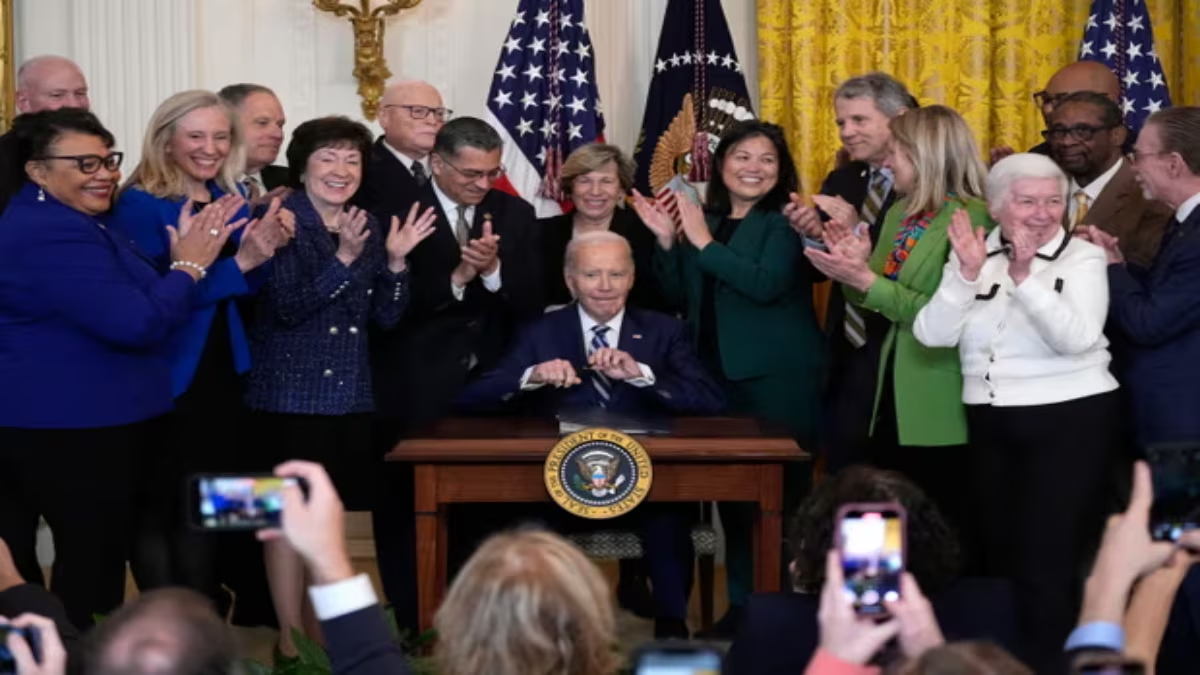The Social Security Fairness Act has officially been signed into law by President Joe Biden, paving the way for nearly 3 million Americans to receive backdated benefits totaling over $4,000 starting January 2024.
Why This Matters
This new law brings relief to millions of Americans who were previously ineligible for full Social Security benefits due to their jobs. The change primarily impacts individuals in public service roles such as teachers, firefighters, police officers, and government employees.
For years, advocates have pushed for fairer Social Security payments. The Senate’s first hearings on this matter date back to 2003, highlighting the long journey to this historic moment.
What Is the Social Security Fairness Act?
The Social Security Fairness Act eliminates two key provisions that reduced benefits for many public sector workers:
- Windfall Elimination Provision (WEP): This rule reduced Social Security payments for individuals receiving pensions from public sector jobs where Social Security payroll taxes were not required. Over 2 million people were affected by this.
- Government Pension Offset (GPO): This rule decreased spousal or survivor benefits for retirees in government roles who didn’t contribute to Social Security through payroll taxes. Nearly 800,000 retirees were impacted.
The act passed both chambers of Congress with bipartisan support. However, it faced resistance from some Republicans who raised concerns about its cost. The Congressional Budget Office (CBO) estimates the law will add $195 billion to the federal deficit over the next decade.
Key Benefits of the Act
The Social Security Fairness Act provides two major benefits:
- Increased Monthly Payments:
- Eliminating the WEP is expected to boost payments by an average of $360 per month.
- Ending the GPO will increase benefits for some recipients by even larger amounts.
- Backdated Payments:
- The Social Security Administration (SSA) is required to provide back payments starting from January 2024.
- On average, eligible recipients will receive $4,320 in retroactive payments for the year 2024.
President Biden highlighted the significance of these changes, saying, “By signing this bill, we’re extending Social Security benefits for millions of teachers, nurses, and other public employees and their spouses and survivors.”
The Impact on Future Benefits
The CBO predicts notable increases in monthly payments:
- For recipients affected by the WEP: An average increase of $360 per month.
- For spousal benefits impacted by the GPO: A $700 monthly increase by December 2025.
- For surviving spouses: An average monthly rise of $1,190.
These adjustments are expected to enhance the financial security of many retirees who have long faced inequities in Social Security payouts.
Reactions to the New Law
The Social Security Fairness Act has received a mix of praise and criticism:
- Supporters:
- Democratic Senator Sherrod Brown emphasized, “Social Security is a bedrock of our middle class. You pay into it, you earn it, and it should be there when you retire.”
- The National Committee to Preserve Social Security and Medicare called the act a “historic” move that corrects decades of unfair treatment for government retirees.
- Critics:
- Some Republicans, like former Representative Bob Good, argued that the law unfairly benefits those who did not contribute to Social Security during their qualifying years. They also pointed out its potential financial burden, with Good stating it could “accelerate the insolvency of Social Security.”
Additionally, experts warn about operational challenges for the SSA. Shawn DuBravac, CEO of the Avrio Institute, noted that the agency might face funding shortages and increased workloads as a result of the new law.
Challenges Ahead
Despite the positive changes, Social Security faces broader financial concerns. The SSA projects that its trust fund could run out by the mid-2030s, which would limit payouts to about 80% of what beneficiaries are entitled to.
An SSA spokesperson confirmed that the agency is still finalizing timelines for implementing the new law and will share updates on its website.
What’s Next?
The Social Security Fairness Act marks a significant step toward equity for millions of public service workers. However, the challenges of funding and ensuring the sustainability of Social Security remain pressing issues. For now, recipients can look forward to increased payments and backdated benefits, with more details from the SSA expected soon.







